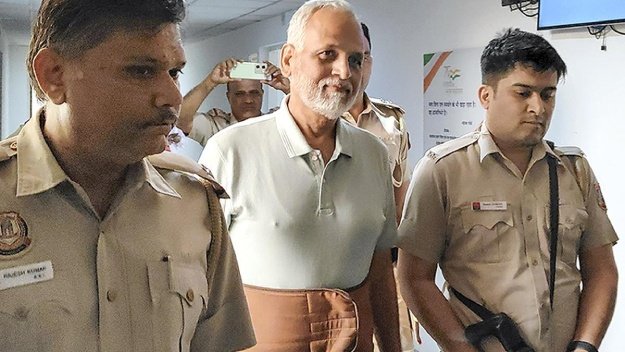A Delhi court has formally accepted the closure report filed by the Central Bureau of Investigation (CBI), effectively ending the probe into AAP leader Satyendar Jain case. This decision indicates that the investigating agency found insufficient evidence to proceed with charges or a trial.
Once accepted, the closure report signals judicial approval that no further action is warranted unless new evidence emerges. The complainant or affected parties, however, still have the right to challenge the report through a protest petition if they believe the investigation was incomplete or biased.
What Was the Satyendar Jain Case About?
Satyendar Jain, a prominent leader of the AAP and former Delhi Health Minister, was under the scanner for allegations of disproportionate assets and money laundering. The case, dating back to 2017, accused Jain of having amassed wealth beyond his known sources of income during his tenure in public office.
The Enforcement Directorate (ED) and CBI were both involved in parallel probes, with the ED arresting Jain in a separate but related money laundering case in 2022. However, the CBI case pertained specifically to the disproportionate assets angle, which is now at the center of the court’s closure decision.
ALSO READ: Hopes Fading For Nimisha Priya; Victim’s Family Demand Immediate Execution
Why Did the CBI File a Closure Report?
According to reports, the CBI found insufficient evidence to substantiate the charges against Satyendar Jain in the disproportionate assets case. The closure report stated that:
The assets in question could not be directly linked to Jain.
The income and expenditure records did not demonstrate clear irregularities.
The investigation did not reveal prosecutable evidence under the Prevention of Corruption Act.
The report was submitted to the court for approval after internal clearance from the agency’s legal division.

ALSO READ: Key Takeaways from Chanda Kochhar’s Conviction in ₹64 Crore Bribery Case!
Conclusion: Legal Relief, Political Revival?
While the acceptance of the CBI closure report in the Satyendar Jain case offers short-term legal relief to the AAP leader, it doesn’t erase the political overtones or future possibilities of renewed litigation. For now, the focus shifts to the ongoing ED case and its potential ramifications for Jain and the Aam Aadmi Party.
This could pave the way for Jain’s reentry into active politics, especially within the Aam Aadmi Party where he has been a key strategist and minister. However, his legal battles are far from over—particularly the ongoing Enforcement Directorate (ED) probe under the Prevention of Money Laundering Act (PMLA).













